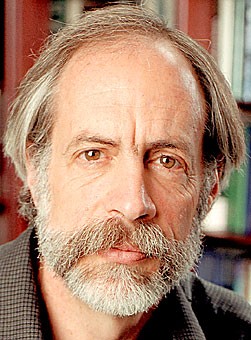Science matters.
We now take for granted that we can use our cell phones to speak to anyone, anywhere, at any time. We take for granted that we can travel to other continents in a matter of hours. We take for granted that we can see images of the interior of the Earth or images of the interior of our own bodies. We now expect to be cured if we contract an infection.
There has never been a time in human history when science and technology have advanced at such rapid paces. However, as our scientific knowledge of the world expands, our increased knowledge can affect our ethical values, religious beliefs or economic aspirations. Many decisions we need to make as individuals, as part of organizations and as members of society offer choices we never had before. Some of these decisions involve scientific issues and require scientific insight.
However, watching, reading or listening to the news reveals that there is often debate about issues that are fundamentally scientific, yet many of those debating the issues and many of those affected do not possess a deep understanding of the science involved. Many arguments result from ignorance.
Evolution and the notion of intelligent design recently have received a great deal of national publicity and been the subject of considerable controversy. Many people have strong religious convictions about this issue. Others are firmly committed to a strictly scientific interpretation. Perhaps many others are in between, looking to develop a more informed point of view.
People have both a need and a hunger to learn more about science – to better understand the advances that touch so many aspects of their lives. And scientists have an obligation to share their knowledge widely, not just with their colleagues but also with the community at large.
This is why the UA College of Science has launched a series of thought-provoking community lectures on evolution. The lectures will show how all the sciences, from astronomy to biology, are interconnected and how together they create our current understanding of evolution.
These lectures are part of a new College of Science program, Theme Semesters, specifically designed to show our community the new and amazing understanding that scientists have developed of our universe. Each spring semester, the College of Science will focus on a specific topic that has important societal implications and encompasses all the disciplines that are represented in the sciences.
During the semester the college will offer a public lecture series, short courses for high school teachers and additional educational opportunities for UA undergraduates.
It’s not enough for just scientists to understand science. If we wish to have a functional democracy, all of us must understand the science that is driving many policy considerations. The first evolution lecture is scheduled for Feb. 21 at 7 p.m. in the UA’s Center for Creative Photography. The full schedule is online at http://cos.arizona.edu/evolution.
I hope that this spring’s series of lectures on evolution will educate many and spark the imaginations of all. Next year, I plan to do the same with global change, another subject that is driving policy worldwide.
Joaquin Ruiz is the dean of the College of Science and a professor in geosciences.









